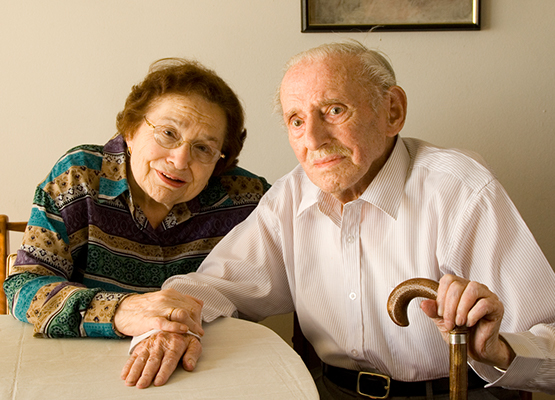
By 2025, approximately 23,400 Holocaust survivors are projected to still be living in the New York Metropolitan area. They are growing older, as a population, and more frail. Their needs are increasingly complex, compounded by the trauma of the Holocaust.
New York City-based Selfhelp Community Services is providing these individuals with specialized care and supports rooted in a respectful, responsible understanding of a survivor’s past and how it impacts their daily life. Its Holocaust Survivor Program makes Selfhelp the largest provider of comprehensive services to Holocaust survivors in North America, serving more than 4,800 elderly and frail individuals each year out of Selfhelp’s overall care to more than 20,000 New Yorkers.
Because of these supports, the overwhelming majority of survivors are able to remain in their homes. Indeed, only 1 percent of cases were closed in 2019 because the need arose for nursing home care.
Developing trust and fostering a healing environment is extremely important when providing home care, enhanced case management, social assistance, emergency financial assistance and other supports in a survivor’s home. These are specialized services: all survivors are served by professionals who solely work with Holocaust survivors. Aides learn the unique nature of working with survivors, especially triggers such as when an individual is being led to a shower or may be frightened by dogs. These competencies are now a standard part of Selfhelp’s aide certification training.
The program’s social workers, meanwhile, average ten years of experience working with Holocaust survivors utilizing the Person Centered Trauma Informed (PCTI) model. Navigating both U.S. benefit programs and European reparations, Selfhelp has obtained 600,000 hours of German-funded and 500,000 hours of Medicaid-funded home care services to survivors, plus 40,000 hours of case management, nearly $1 million in emergency financial assistance, and nearly 3,000 hours of volunteer assistance.
A vignette
Mrs. M. was born in Budapest, Hungary in 1927. During the war she was in the Budapest Ghetto and was liberated in 1945. Mrs. M. lost her husband in 2017. This loss had a detrimental impact on Mrs. M.’s physical, emotional and financial well-being. Not only was the client grieving the loss of her spouse but with the loss of his income, her ability to remain in her apartment became questionable.
Her social worker recognized the client’s increased vulnerability and took several steps to assist her. She understood the client’s need for additional support and began to visit the client more frequently to provide necessary case management services as well as bereavement support. She helped the client obtain German Government funded home care as well as several emergency assistance grants, including for Medigap insurance payments, Passover food and even shoes. The social worker helped Mrs. M. recertify her monthly rent stipend from Blue Card as well as her SNAP (food stamp) benefits and ensured that she receives the maximum amount for both. She also connected the client to the Family-to-Family program, which provided the client with a $50 monthly gift card towards food.
After the loss of her husband, Mrs. M. started to exhibit depressive symptoms and had stopped eating. As a result, she became very weak and frail. Her social worker recognized the client’s need for additional services and she referred her to a home visiting psychologist who is providing the client with much-needed emotional support and the client is showing signs of improvement. The combined efforts of the client’s social worker helped stabilize the client’s emotional, physical and financial situation and she continues to serve as an invaluable support to her.



